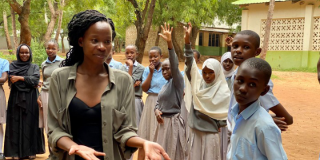
"My name is Lucy Asewe, I am volunteering with VSO as an Inclusive Education Advisor on the ACTIVE project in Kenya.
I have a background in education, but I previously volunteered in reproductive health. I have a passion for supporting children in school and building community support for education. That's what really moved me towards this role.
What made you want to volunteer with VSO?
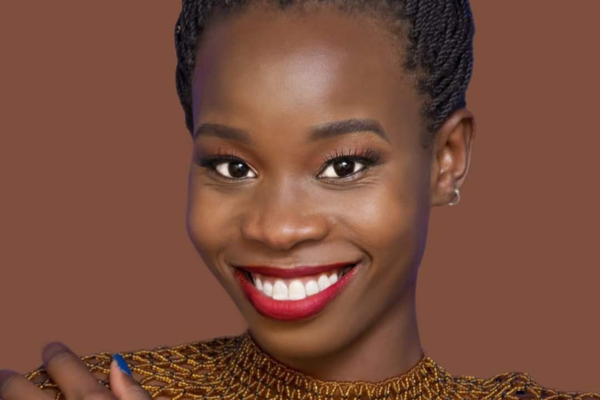
I was volunteering in a different organisation, which was working with VSO on livelihoods matters. I was interested in that area, so I started volunteering as a community volunteer. I encountered my current role through friends and fellow volunteers, applied, and was lucky enough to get the position.
What's your role on the ACTIVE project?
I’ve been in the Inclusive Education Advisor role for a year now. It involves supporting the professional development of teachers and learners in school, and bringing awareness to children's rights. I also follow up with the community to know their rights and how they can champion improvement.
I work with stakeholders in the education sector to ensure that education spaces are safe, resourceful, and meet the needs of the learners, so that all students with different abilities and needs can stay in school. My role also integrates with livelihoods and community development because the challenges every community faces also impact education.
One major challenge is parental involvement due to poverty or background, so my role also involves capacity building parents in the community, linking them to spaces that can boost their livelihoods or knowledge on how they can advocate for their learners.
I was working with teachers, stakeholders in education, policymakers, parents, and the learners themselves. But education matters are not standalone – you come to realise that other issues such as livelihoods or health come into it, so we work with our partners to make sure that these needs are also addressed.
Can you provide an example of intersectionality issues?
When I came in, there were teachers who were trained to understand adolescence and life skills, who were then going back to interact with learners in school.
When we interacted with them in the school rice clubs we created, we found learners reporting their classmates missing either because they're pregnant or because they didn’t have the money –for exams and supplies, or to support their family. Some are also experiencing malnutrition issues; they come to school hungry, and they can't learn. We would link them to health centres for nutritional services.
We would connect those who had dropped out due to pregnancy to facilities with youth spaces. Here they are taken care of, and then there is a programme to re-enrol them back to school when they've delivered.
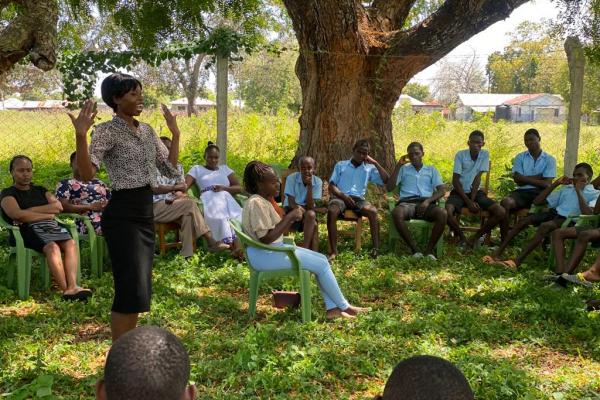
We also ran clubs to help learners understand their rights, create their own spaces, know where to get help and so on. The challenge here again is issues of parental involvement, particularly in the coastal area. It's all about how women should be beautiful and get married, so that their parents can receive a dowry. The attitude is, ‘I will get married to a rich person or a white person’, rather than getting education. Parents are not really valuing that.
The clubs are helping them to understand that it's not dropping out of school or getting pregnant or married to a richer person, or to one of a different race, that is going to help you fend for your livelihood – but you can do it through education.
For learners with disabilities, we managed to set up services or support groups, so that they're able to learn, get access to other services like psychosocial support or learn how to deal with different types of disabilities and what opportunity they have together.
What behaviour and attitude changes have you observed while on the project?
When I joined, teachers would tell me ‘Learners do not like maths’, ‘they don't like being in school’, ‘they don’t like clubs. We took teachers through inclusivity trainings for gender, disability, and different learners’ needs, as well as following up with learners who were missing school or lacked the resources to learn.
After this, we've seen more learners wanting to join clubs. There’s also a change in how learners are interacting among themselves and their quest to spread knowledge to the entire school, so it's not only about those who are in the club but rather everybody in the school.
With the support of teachers on numeracy skills, a change from lecture-style learning to more interactive and interesting teaching methods there's more engagement among learners.
They've also been able to integrate their classes for learners with disabilities and learn together in one inclusive setup. It's not something that happens all the time, but we appreciate the aspects of it coming up strongly and making their work easier.
Also, for parents, where it was previously a case of, ‘I have a child with disability, what do you really want me to do?’, they now understand the need of all children being in school, and not to be treated differently. We've had parents who are eager to learn sign language so that they're able to attend sessions.
We even have teachers who are going out of their ways to source things like sanitary towels and other things so that their learners don’t miss out. There's a shift in attitude and there's a general improvement. We're not yet there, but we are making good steps.
Volunteering with VSO is a free school; you are taken to school without strings attached. I would encourage people to apply, to build your network and open yourself to the many new opportunities.”
What challenges have you encountered on the project?
VSO prepares you for things that you never really experienced before; it prepares you to be very resilient but also to be empathetic and help the community more. For me, the challenge is when I had parents, teachers or learners bringing in issues that are not covered in the project, but you see they're still genuine issues.
I was always tempted to try to solve all the issues. We've been able to link a few to some trends and some opportunities I'm hopeful they will go through. I want to see an inclusive setup in schools, but when there are challenges of either resources or personnel, then it's beyond me.
What helped you to move through these challenges?
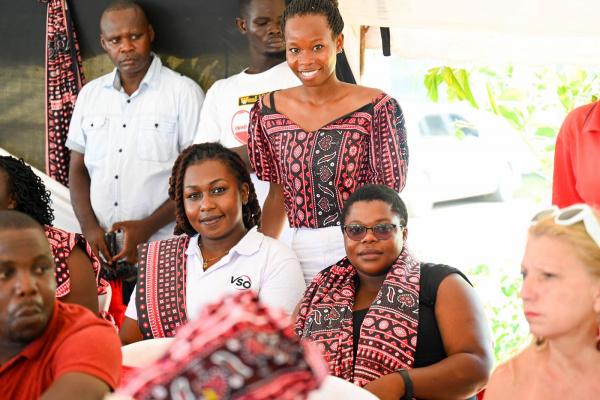
I learned my environment through networking. I learned that there are different civil society organisations (CSOs) around and some are doing work related to whatever challenges I’m facing. Where I could link, I would link, and make referrals and recommendations.
How was your experience collaborating with different volunteers on the project?
I worked with national and community volunteers. I think it's not only about the work that you are doing together, but also my ability to really learn from them, network with them.
I built a network from a space where I didn't know anybody, and I've been able to build a network of people where now, if I need anything, I know who to call. Community volunteers are from the same community, they know the people, they know which buttons to press. I might be an expert in education, but they understand the issues on the ground and probably have proposed a solution already. It helps us with knowing what intervention suits best.
What do you think of the volunteering for development approach?
I think it all comes down to passion. I'm a volunteer and I've been there 100%, not considering what time I'm supposed to work etcetera. But I think if you have a mash-up of paid and voluntary roles supporting each other that would very impactful.
What inspires and motivates you to volunteer?
The satisfaction of a life changed in the community, even if it is one person. My personality is that I really need to offer help, so long as it is resonating with whatever I value or believe in.
My major goal is to create lasting change, to create resilience in the community, also to fight for voices of people who don't have voices – or rather people deemed them not to have voices.
What skills have you gained from your role?
Coming in, I did not look at the ability to integrate three areas of education, health, and livelihoods in one and successfully deliver a programme with it. That is something that I've learned, and I learned it quickly.
I initially would face issues differently. I would face sexual reproductive issues differently; handle education and livelihoods matter differently. Now I've learned how to integrate and tackle them together so that there is a broader, more lasting change and something that has solved many problems.
I've developed so much in terms of networking and policy work – which was not my strength before. I've developed skills in writing documents like training manuals, IC materials and to specify them to the needs of each person. I also had a great growth in terms of budgeting and accounting skills. I knew it but shallowly, so I've grown in that too.
Who's impacted you the most on the project?
My project officer, Monicah Ramah, has been very impactful in my journey and helped me to take very bright footsteps in everything I do. I've been able to do my work is because I was given the freedom of do it.
She's tossed me into all kinds of new spaces. If you tell her ‘This is my weakness and I really want to learn’, she will give you materials about it, and she’ll create time to take you through them.
What are your aspirations?
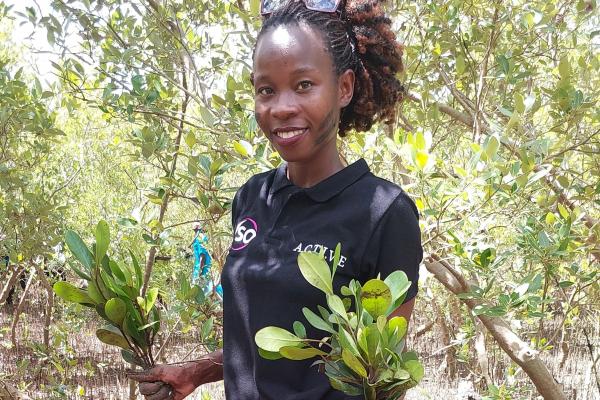
I'd like to venture into project design. I feel ACTIVE has given me the opportunity to engage in so many review and planning meetings, and with the benefit of Monicah’s leadership, I could see a bigger picture and be part of creating something.
I would like to design projects around inclusion and child protection. I think if you get people who still do not understand inclusion or integration, it can jeopardise the whole thing because they will be like, ‘Let me just do things in education, let me just do things in livelihoods.’
I want a rounded person who is healthy, educated, and can fend for themselves. It's a problem of people not understanding what integration really means, and it can limit resources, but it’s also important in ground-setting. I'm coming to work with you in the community and for this community.
What would tell anyone considering volunteering with VSO?
It's a journey that rewards you instantly. Volunteering with VSO is a free school; you are taken to school without strings attached. I would encourage people to apply, to build your network and open yourself to the many new opportunities.
How do you think VSO volunteers are making a difference?
I see VSO differently to other INGOs because it provides opportunities based on your expertise and passion, but its approach is not restricting. I was able to learn about accounting, budgeting, and policy as a volunteer. It's something that builds one’s capacity. You learn so many things in just one year that you wouldn't have learned if you stuck somewhere.
I think that's the uniqueness, the kind of support and opportunities, and then the fact that its expertise based. It has a whole support system. In my role, Praveen Kumar [VSO Inclusion and Diversity Lead] and Purna [Education Programmes Technical Lead] have been instrumental, so there are people you've never even met, but they're supporting you in the learning. It triggers something new all the time.
Is there a life principle that keeps you going when things get hard?
I think that if you're going to do something, do it well. When I was young, a volunteer told me, ‘Lucy, it doesn't pay, but you never know who is watching.’ Sometimes there are things that you're not passionate about, but you never know who is watching. Even if there's nobody watching, it will come to look for you one day. I have fun too; I want to make sure my fun gives me happiness so that I can deliver it to everything."
The ACTIVE programme
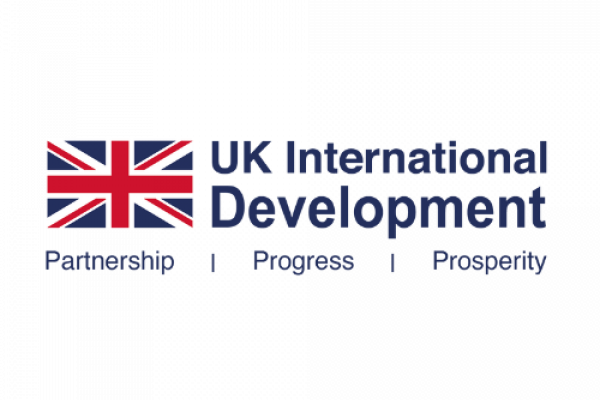
ACTIVE aims to reach 2.5 million people across 19 countries - Bangladesh, Cambodia, eSwatini, Kenya, Malawi, Mozambique, Nepal, Nigeria, Rwanda, Sierra Leone, Tanzania, Uganda and Zambia - by mobilising marginalised groups, such as women, young people and those with disabilities, to act on the issues that are most important to them and their communities.
This funding will help strengthen locally led organisations and create a culture of active citizenship – where marginalised people actively engage with their own development - whilst building the capacity of the UK’s partner countries to respond to the needs of their citizens across healthcare, education and livelihoods.
Read more
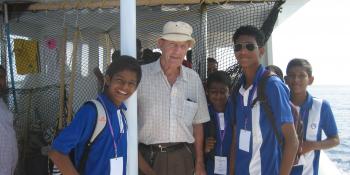
Transforming lives through education: Geoffrey’s VSO legacy
With a deep belief in the transformative power of education, Geoffrey from Norfolk, UK, has devoted his life both in the UK and abroad to making education more accessible for all.
